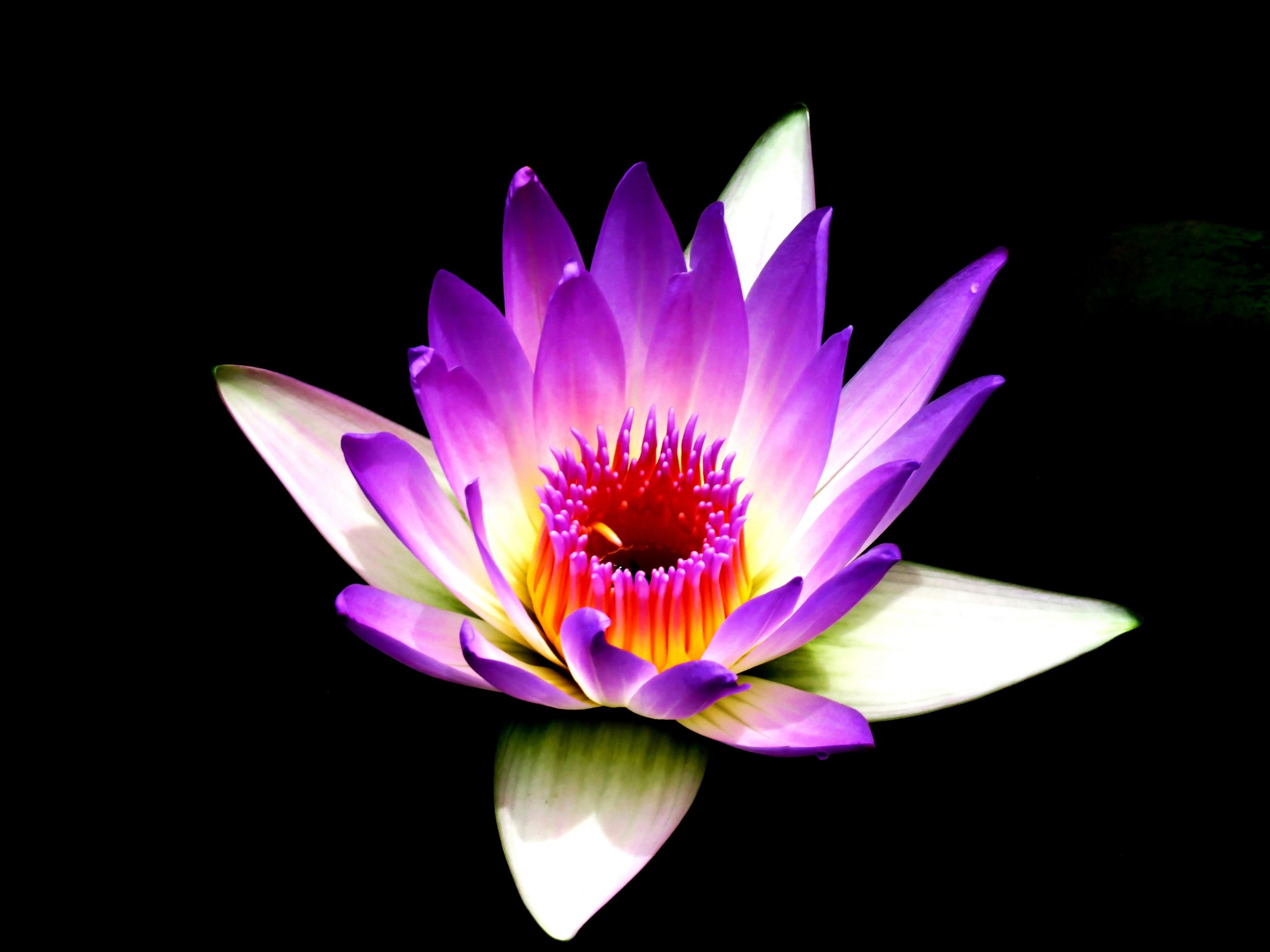
Mahamantra Meditation
Five hundred years ago, in India, Sri Caitanya Mahaprabhu ushered in the modern age of mantra meditation by freely initiating everyone—regardless of race, religion, or social-status—into the chanting of the most effective mantra of all, the once-secret Hare Krishna [”Huh-ray Krish-na”] Mahamantra.
</p> <dl> <dd><i>हरे कृष्ण हरे कृष्ण</i></dd> <dd><i>कृष्ण कृष्ण हरे हरे</i></dd> <dd><i>हरे राम हरे राम</i></dd> <dd><i>राम राम हरे हरे॥</i></dd> </dl> <p>
Maha means “great,” man means “mind,”’ and tra means “release.” Mahamantra, then, means “the great sound vibration to release the mind from undesirable conditions.” In the Psychology of Consciousness Dr. Robert E. Ornstein says, “Actually, the ‘magic’ lies in the sound of the words, which are designed to have a certain effect on consciousness.” By simply hearing the sound of a mantra, a person clears his mind of unfavorable psychological qualities and simultaneously cultivates favorable qualities.
There is no need for a private mantra. Sri Caitanya Mahaprabhu democratized meditation by making the Hare Krishna mantra available on the most liberal terms to everyone. He taught, “There are no hard and fast rules, for chanting… A person can chant the Hare Krishna mantra anywhere, at any time, either to relieve distress or to advance in self-realization. However, the early morning is an especially favorable time for meditating. Also, the practice of Hare Krishna mantra meditation proceeds more smoothly when you set aside a specific amount of time per day for meditating. Set aside a convenient amount of time that fits into your schedule, and, if possible, gradually increase your practice up to an hour or more. You can arrange your practice in two or more sessions during the day or evening.
To chant the Hare Krishna mantra, assume any comfortable position, except a slouching or reclining one (you’ll just become drowsy). You can chant while sitting, while standing, or while walking. You can keep your eyes open or closed, or you can alternate between open and closed eyes. Repeat the mantra (Hare Krishna, Hare Krishna, Krishna Krishna, Hare Hare/ Hare Rama, Hare Rama, Rama Rama, Hare Hare) audibly to yourself for as long a time as you intend to meditate. (Make sure that you move your lips and jaw as in pronouncing ordinary words.) You can chant as loudly or as softly as you like. You can vary your pitch and inflection too. Remember, “There are no hard and fast rules.” Meditation is a personal science, and people aren’t machines. There’s no mechanical way to develop your potential. If a meditational technique is to succeed, then it has to be as natural, free, and expressive as you yourself are. Rather, than stifling your personal, self-expressive tendencies, the Hare Krishna technique works with these tendencies to stimulate natural, flowing meditation.
While you’re chanting, simply fix your mind on hearing the sound of the mantra. When you talk, it’s natural for you to listen to your voice, During meditation, direct this natural attentiveness to hearing the mantra. The quality of your meditation will depend on how well you do this.
It’s true that in the course of a meditation your mind may wander or daydream. When this happens, don’t fight it, just bring your attention back to hearing the mantra. As Sri Krishna says in the Bhagavad-gita (6.26),“From whatever and wherever the mind wanders due to its flickering and unsteady nature, one must certainly withdraw it and bring it back under the control of the self.” Srila Prabhupada explains, “The mind is naturally restless… but it can rest in the sound vibration of Krishna.” The mind is seeking knowledge and pleasure, and be cause the mind find’ these things in the sound of the Hare Krishna mantra, it becomes peaceful and satisfied.
The words of the Hare Krishna mantra come from the ancient Sanskrit language. Hare means “one who takes away all mental disturbances” and “one who awakens all healthy qualities.” Hare also means “the energy or pleasure potency of God.” Krishna and Rama are personal names for God. Krishna means “all-attractive.” Rama means “reservoir of pleasure.” When a meditator repeats these sounds, the mantra gradually unfolds its meaning to him and enhances his personal development.
You now have everything that you need to start practicing meditation in your own home. Simply repeat the Hare Krishna mantra and listen to the sound. Progress will follow automatically. One last hint—your rate of progress will also depend on the sincerity of your feeling while you chant. Again, meditation is a personal science.



